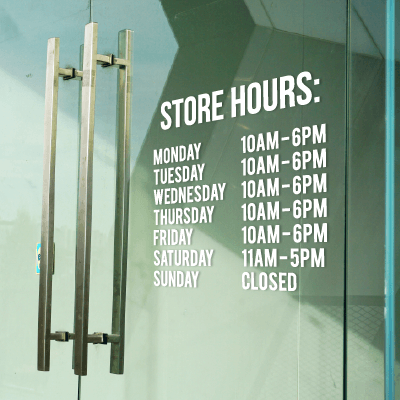Every spring, hordes of college juniors and seniors pound the pavement, looking for an internship that will help them gain experience and make them more employable after graduation. Your business may benefit from having an intern around this summer, but before you post an ad on Craig’s List, do your homework and make sure an internship is a good fit for both you and a student.
7 Reasons You Should Hire a Summer Intern
- Interns bring a fresh perspective to your business. It’s easy to get stuck in a rut, especially when you’ve been doing things a certain way for several years. An intern sees everything about your business with fresh eyes and might see ways for you to increase productivity or improve services. Just because your shipping policies made sense five years ago doesn’t mean there isn’t a better way today. Ask your intern to take a look at your policies and procedures and see if he has some new ideas.
- Need something new? Interns are young, eager and often very creative. Give them some guidance and then turn ‘em loose to freshen everything from your marketing to the actual products you create or sell.
- Speaking of marketing, do you know the latest social media trends? Your intern probably does. College kids are the bread-and-butter of social media platforms such as Facebook and Twitter, and they tend to be some of the earliest adopters of new technology.
- Interns bring energy to your business. They’re young. And excited about their prospective new careers. And they can go all day on four hours of sleep. Just having an intern around can motivate both you and your employees. Of course, make sure to choose a happy, energetic intern… steer clear of the angst-ridden, depressed kid.
- You’ll become more creative and productive by teaching your intern. Med students are told: See one, Do one, Teach one. That’s because during “See one” and “Do one,” the student is thinking really hard about which step comes next and trying to do it correctly. When he gets to “Teach one,” he not only has to remember, he has to articulate why he’s doing each step. This can work for you, too. By teaching someone else about your business, you’ll be thinking again about why you do what you do and you may find that you can improve some of your methods.
- Find a great future employee. You’ll get a chance to really get to know your intern and find out if he is capable, reliable and bright. When you need to add an employee, he’ll already have some training and be familiar with your business.
- You’ll save some money. The right intern can get a lot done over the summer, and for a lower wage than you’ll pay someone who already has a degree. However, that doesn’t mean he’ll work for free. See below for laws regarding the U.S. Fair Labor Standard Act.
3 Reasons You Shouldn’t Hire a Summer Intern
- It takes time and preparation. Hiring a new employee and hiring an intern are two distinctly different things. As an intern’s mentor, you or one of your employees are required to be hands-on during an intern’s entire stay. You won’t just hand the person an employee manual and have him start working on his own. An intern requires supervision.
- Your intern is not a secretary. You shouldn’t hire an intern to catch up your paperwork or filing or answer the phone. An intern should be learning valuable career skills. For instance, an engineering intern should be working on basic drafting and collaborating with veteran engineers to help with projects. You’ll be teaching the intern how engineers do their jobs and letting them help out.
- Internships are not free. Most of the time, you’ll want to pay your intern. Sure, you’ll save a lot of money compared to the going rate for an experienced employee, but there are additional costs in time and effort involved. It takes time to post job openings and you’ll need to interview interns to find the right person for the job. You or your employees will be spending extra time teaching the intern during his tenure. You may have paperwork to fill out so that the intern can earn college credit.
Pay or No Pay?
The U.S. Department of Labor has set standards to determine whether or not an intern at a for-profit institution must be paid minimum wage (1). There are six criteria:
- The internship, even though it includes actual operation of the facilities of the employer, is similar to training which would be given in an educational environment;
- The internship experience is for the benefit of the intern;
- The intern does not displace regular employees, but works under close supervision of existing staff;
- The employer that provides the training derives no immediate advantage from the activities of the intern; and on occasion its operations may actually be impeded;
- The intern is not necessarily entitled to a job at the conclusion of the internship; and
- The employer and the intern understand that the intern is not entitled to wages for the time spent in the internship.
It’s certainly possible to set up an internship that meets these criteria, but is it a good idea?
Arizona State University offers the following reasons to pay your intern:
- Attract skilled interns.
- Increase intern commitment and reward for contributions.
- Reduce financial burdens that may require a student to work a second job during their internship (or limit internship opportunities to only those students who can afford them).
- Offset the cost of paying for tuition when a student chooses (or is required) to earn credit for an internship.
1. U.S. Department of Labor Wage and Hour Division. “Fact Sheet #71: Internship Programs Under the Fair Labor Standards Act.”




































